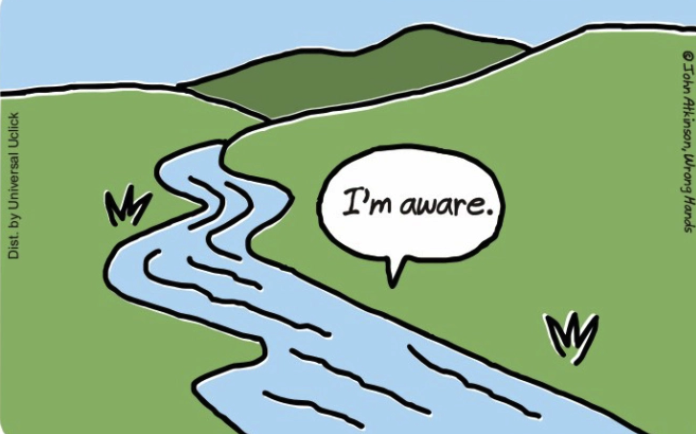I have attended 307 sporting events at either a collegiate or professional level since Jan. 1, 2009. Concerned? Maybe you should be. However, maybe you should be more concerned with the fact that I have counted them. I am a sports addict. Regardless of your predispositions about professional sports or sports fandom, whether you surround yourself with it or you think it’s superficial, I ask that you discard your biases, assumptions, and prejudices and read with an open mind. Now that you have done your part, let me do mine by explaining why your friends, your nation, your culture, and I have latched on to sports in suffocating fashion.
We watch the games. We argue about the decisions of players and coaches for hours. We spend ludicrous amounts of money on tickets and apparel. We become more emotionally invested in these people and games which we cannot control than we do in our personal lives. It is insanity (or Lin-sanity if you prefer). But whether we are worshipping Babe Ruth or singing the praises of underdog Jeremy Lin, many argue that sports fans live in a fantasy. Those people are absolutely correct, but are sports fans alone in that regard? No, that is the culture of America, if not the culture of the world. If you don’t believe me, take a look at the Harry Potter phenomenon or the cult-like following of Glee (I’ve never watched it so maybe I don’t know what I am missing, but you get the point). Yet unlike television or books, the outcome isn’t predetermined and the characters are real human beings. Although many will argue that we obsess over these players and teams because our lives are too ordinary to admit (maybe they’re right), what they cannot deny is the compelling human drama unfolding before our eyes. Will there be a goat a la Brooks Conrad? Or will we see a hero emerge such as David Tyree? This human drama is the nicotine of sports.
Aside from the daily pleasure and often trivial nature of sports, the human drama within the games expands into the stands. Sometimes the daily, mundane events become uniquely memorable experiences. For example, on April 5, 2010 (Major League Baseball’s Opening Day) Jason Heyward stepped into the batter’s box for his first major league plate appearance. You all know what happened. (If you don’t, he became the 103rd player in MLB history to hit a home run in their first at bat AND shame on you!). For even the most casual of Atlanta sports fans, this was a memorable moment and a rare occasion. However, every once in a blue moon a rare occasion transforms into a borderline religious experience. I’m talking about when the competition transcends itself. Whether you mention Sep. 25, 2006 to a Saints Fan—the first home Saints game since Hurricane Katrina, when the Saints dismembered the Falcons by a score of 23-3—or Feb. 12, 1980 to a hockey fan—the date of the United States’ Olympic victory over the Soviet Union in the heat of the Cold War—these games will live on not only as great moments, but inspiring and emotional experiences. My personal favorite occurred on Sep. 21, 2001 in the first game since the 9/11 attacks. In a NL East matchup, Mike Piazza, a catcher drafted in 41st round, resurrected not only the New York Mets, but the entire city of New York by hitting a two run homer that rejuvenated a discouraged and dismayed America even if only for a night. In short, sports have the capability to unite a nation, alleviate extreme pain, and provide invaluable joy in times of sadness. No other form of entertainment can produce such authentic emotions.
As glorious and inspiring as the moments above are, a darker side of the sports culture exists. From the relatively harmless act of spilling beer on a rival fan to the hate mail sent from fans to players (e.g. Hank Aaron or Brooks Conrad), the reality of sports and extreme fanaticism is that people sometimes, if not often, lose perspective. Take for instance Steve Bartman. Although he was simply in the wrong place at the wrong time, Steve Bartman was blamed for the Chicago Cubs NLCS loss and lack of a World Series appearance because he tried to catch a foul ball. A foul ball, the ultimate souvenir, ruined the man’s life in Chicago as the entire city turned on him. Steve Bartman endured no physical damage, though, something that cannot be said for Bryan Stow, a San Francisco Giants fan who was beaten relentlessly after a game at Dodger Stadium. The savage beating caused Stow traumatic brain injuries, the consequences of which have yet to be determined almost a year after the event. Without a doubt, these examples are dreadful, but they are also the most extreme circumstances. The benefits of sports far outweigh the costs.
When all is said and done, sports continue to generate the most revenue out of all forms of entertainment. It provides countless jobs for individuals, in fields such as sports journalism, sports business, stadium operations, and so on. Furthermore, sports have infiltrated our culture and our identity as a nation. All of the premiere leagues (except for soccer ironically enough) reside in the U.S.; in other words, we are the Mecca of the sporting world. This nationwide addiction, albeit artificial in some ways, is a healthy obsession that not only prevents our submission to the daily grind, but, when everything goes just right, can boost a fan base, energize a city, and unite a country.


